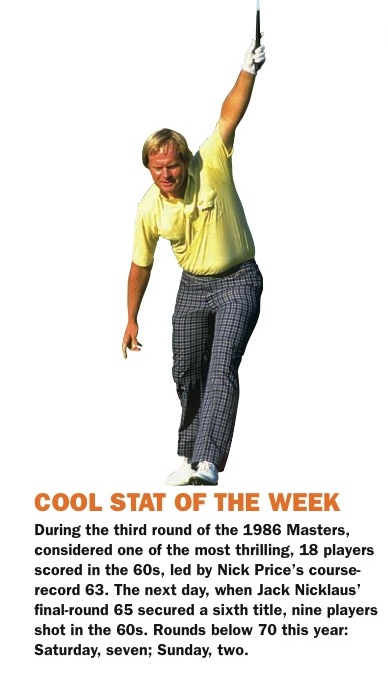Third Masters Question: Has The Telecast Style Altered Our Perspective?
/There were so many great posts on the first two Masters "questions" posed (here and here), including Mark B's "rant" about changes to the presentation of the event and the impact the coverage window expansion has had.
And while there is clearly disagreement about whether the last two events are an aberration or the inevitable result of letting golf architecture's Jackson Pollock restore one of its Monet's, I wonder if we underestimate how much the lack of excitement for television viewers has been impacted by the pace of play and director Lance Barrow's different approach to the telecast.
Some of you noted that the high water mark for Masters telecasts came in 1986, which was followed by several more great finishes. Having grown up a student of that great stretch (and still owning them on VHS), I remember that the shorter telecast window and Frank Chirkinian's preference to show as many shots as possible lent a sense of urgency to the proceedings that seems to be missing today. There was also a sense of extreme control over the entire telecast back then, something noted in this Richard Sandomir piece from 1995 that's worth reading.
In Barrow's defense, the broadcast window has expanded, play has slowed, fans expect a graphic for each player's shot and the opportunity for a birdie run three or four in a row has disappeared.
But I'm wondering if we are unfairly judging the event based on a presentation style that went out with Chirkinian's retirement?
Has the length and pacing of the telecast exaggerated the negative reaction to the last two events?
















